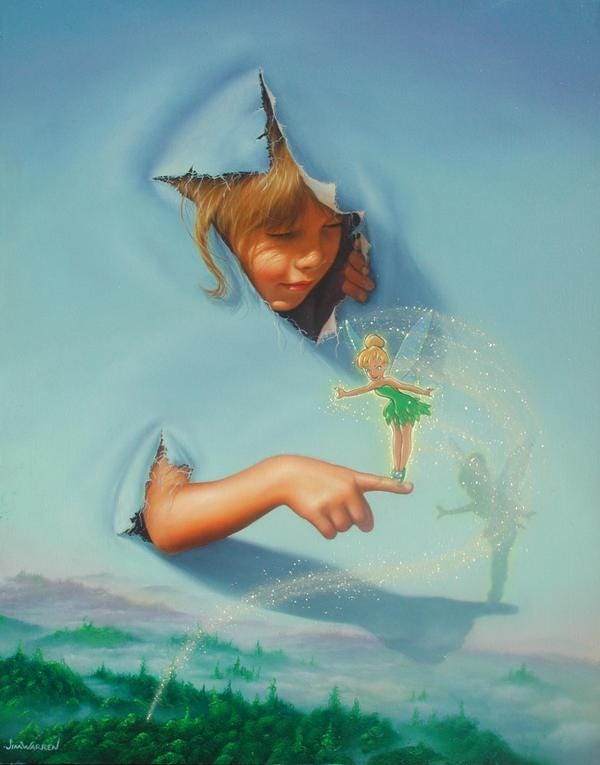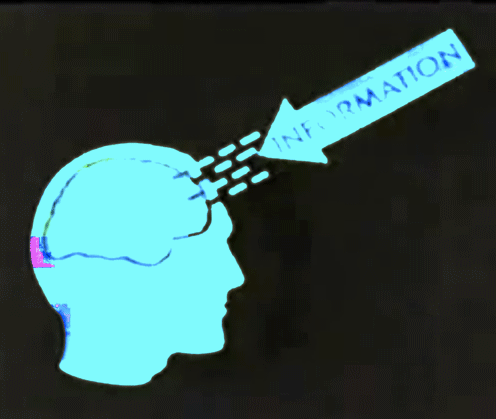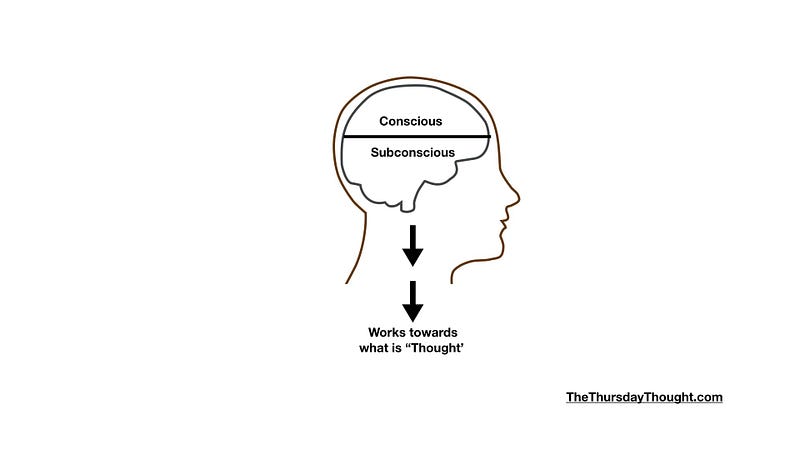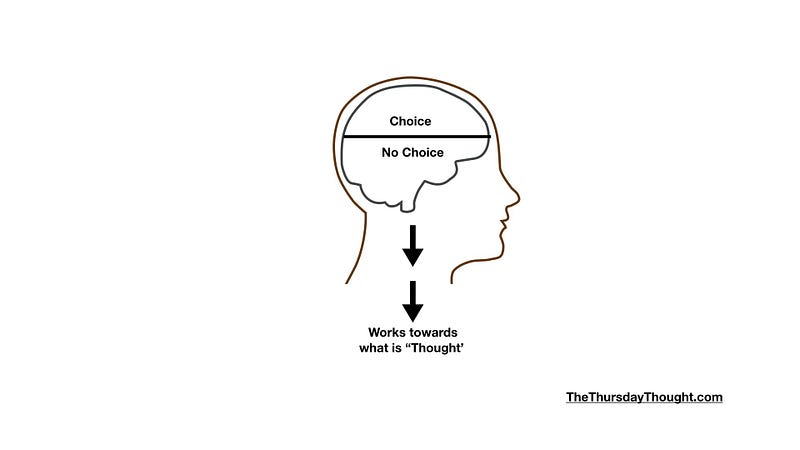
“Out of the lumber of things we are taught, the gravel and cement of our experience and the nails of the things we observe, we slowly erect an edifice, an unconscious, internal temple of reality, gradually filling it with the furniture of habit, custom, preference, belief, and bias. We get comfortable there. It’s our sanctuary. Through its windows, small though they may be, we view society and the world. Our internal model of reality is how we make sense of the world. And it can be a badly built place indeed. Even if it is well constructed, it may have become archaic.” — Dee Hock (founder and CEO Emeritus of Visa from Innovation Show documentary)
Every morsel of information we allow into our minds, both consciously and subconsciously informs our beliefs, habits, ideas, perceptions, behaviours, emotions. This mixing bowl of information creates our world view. Everyone of us experiences life differently, in a way unique to each one of us. Our world is like a blank projector screen onto which we project our individual beliefs, habits, ideas, perceptions, behaviours and emotions.
We can filter what information to feed our minds every day. If we consistently consume negative news stories this will have a detrimental effect on how we see the world. Tilting towards a positive view takes consistent work, but being in a positive state of mind is essential for us to overcome setbacks.
Mental Models

“You are what you are and where you are because of what has gone into your mind. You can change what you are and where you are by changing what goes into your mind. “ — Zig Ziglar
We develop mental models to make sense of the world. As infants, we learn through observation, learning from those who care for us. Throughout life, we further develop our mental models through a cocktail of education, socialisation, religion, beliefs, friendships, information we consume, all our sensory and experiential input. We develop mental models to help us organise and process information quickly. Our internal models of reality develop slowly, accumulating furniture of habit, custom, preference, belief, and bias. Like a hard to beat habit, the slower they develop, the more difficult they are to overcome. While we cannot choose the life we are born into, we can choose how to feed our minds, bodies and experiences by choosing positive habits, people with whom we interact and information we choose to consume.

Relying on the same sources of information is a mistake and only serves to further reinforce our existing mental models (known as a confirmation bias). Questioning our assumptions on a regular basis is a healthy exercise. When we vary the inputs that feed our perspectives, we can uncover novel insights. In our world of constant disruption, it is essential to reconsider our assumption and question thoughts that are no longer serving us.

The key thing to remember is that your subconscious mind does not have a choice as to what information it is fed. The subconscious mind stews on those thoughts (good or bad) all day long, even when you sleep.
We have a Choice

We can choose what information we feed our conscious mind. The information we feed our minds influences how we see the world. This is why as parents we must be hyper-vigilant of what our children watch, read and indeed who teaches them. This is why we can tell a lot about a person by the company they keep. This is why we can tell a lot about a person by the habits they keep.
The reason I raise the idea of mental models and why we must curate what we feed our minds is that we are surrounded by negative news about the Covid-19 pandemic. I am not suggesting we stick our heads in the sand and ignore the dangers, but what I am suggesting is that we limit the negative news for our mental health and our future world view. Our guests on this week’s Innovation Show are Dr. Tina Payne Bryson and Jodie Jackson. Tina shares how we must communicate with children during this crisis and how we should balance the reality with the positives. Jodie Jackson is author of “You are what you read” and Jodie emphasises that news operates to a “if it bleeds it leads” mantra, so it is inherently negatively biased.
The most important skills for tomorrow’s world (and increasingly today’s world) are our deeply human skills that have evolved over centuries. These skills are alien to Ai. Skills such as intuiting someone else’s emotional state, empathy, critical thinking and connecting dots as opposed to definitions, distinctions and deductions and collecting dots, those more recent skills in our evolutionary process. We need to take care how we communicate with our children during this lockdown to ensure that they see the world as a positive place, one filled with opportunity and beauty.
“What we give attention to, what we focus on repeatedly, activates the brain in different ways. If we’re giving a lot of attention to how horrible this (Covid-19 pandemic) is without also giving a lot of attention to the good things are happening, the things we’re learning, the ways people are coming together etc. Then we’re going to be activating some more reactive fight and fear centres of the brain. But, If we also give attention to this idea of people coming together and the good things that are happening. We can also activate the higher structures of the brain: that lead to empathy and problem solving and those kinds of things. So, it’s important we sit in gratitude and positivity in the midst of all of this as well.” — Tina Payne Bryson, PhD
Jodie Jackson poses a question on the Innovation show. To test your own beliefs, answer the question: “In the last twenty years, has global poverty: A. doubled B.remained the same C. fallen by half?” The answer is that it has fallen by half. If you got this answer correct, you would be amongst only 7 per cent of the thousands of people who took this survey, who optimistically said the same. The remaining 93 per cent believed it had either remained the same or doubled. This statistic highlights a kind of ignorance that comes not from being uninformed but from being ill-informed, because news is negatively biased.
There is no information written in stone, all should be questioned. In a world of fake news and questionable media, it is wise to question the data we consume. As a parent question the data our kids are exposed to as this will inform how they interact with the world in the future.
Life is an odyssey on which we will experience pain, loss and countless difficulties, therefore why would we choose to seek out more negativity than is necessary. Organisational theorist Dr Richard Boyatzis said “You need the negative focus to survive, but a positive focus to thrive.” This is a useful way to interact with the world, to use threats as a radar and to use opportunity as a compass. We are inherently negative biased creatures, when we lived in caves (only 200,000 years ago) we needed to be hypervigilant to threats. Thus, we need to work hard to rewire how we think. Focusing on the positives that life gives us each day changes what world view we project onto the blank canvas of life. Jordan Peterson puts it beautifully…
“You have to be alert to the unexpected beauty in life. You have to look for that little bit of sparkling crystal in the darkness when things are bad. You have to look and see where things are still beautiful and there’s still something that’s sustaining. You narrow your timeframe and be grateful for what you have and that can get you through some very dark times.” — Jordan B. Peterson
Stay Safe and Thanks for Reading
On this week’s innovation show we released the Dee Hock documentary, 7 parts in total, 5 released. We also welcomed the brilliant Dr. Tina Payne Bryson to share how to communicate with children and take care of ourselves during this pandemic. More about Tina here: www.TinaBryson.com
Jodie Jackson joined us to share her book “You Are What You Read: Why changing your media diet can change the world” more about Jodie here: https://JodieJackson.com
All episodes are available on the following platforms and much more besides:
Soundcloud https://lnkd.in/gBbTTuF
Spotify http://spoti.fi/2rXnAF4
iTunes https://apple.co/2gFvFbO
Tunein http://bit.ly/2rRwDad
iHeart http://bit.ly/2E4fhfl